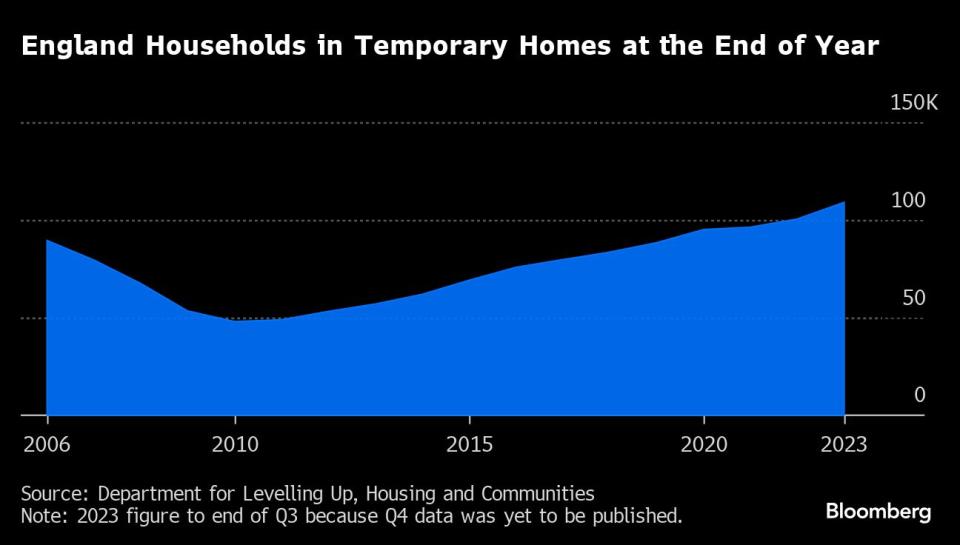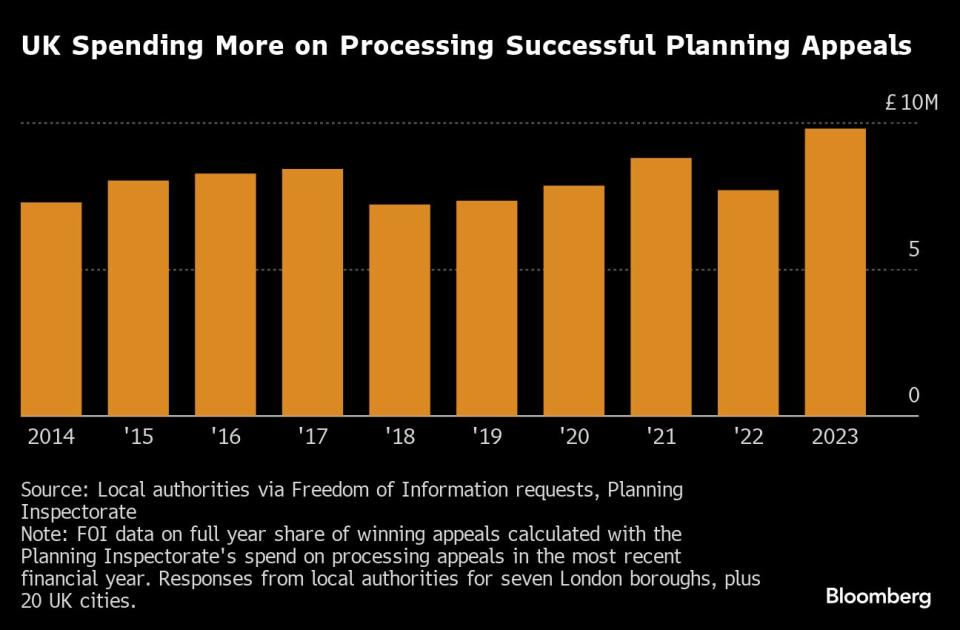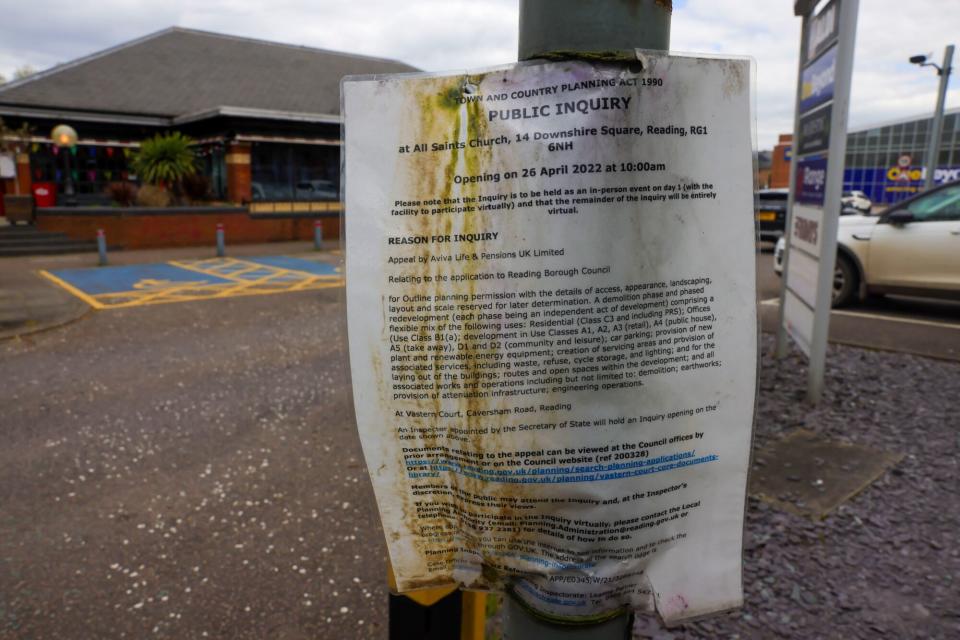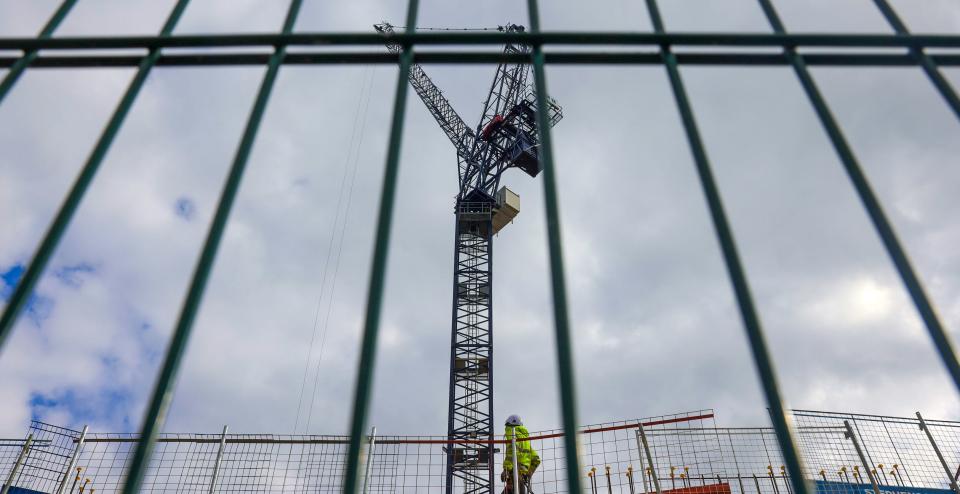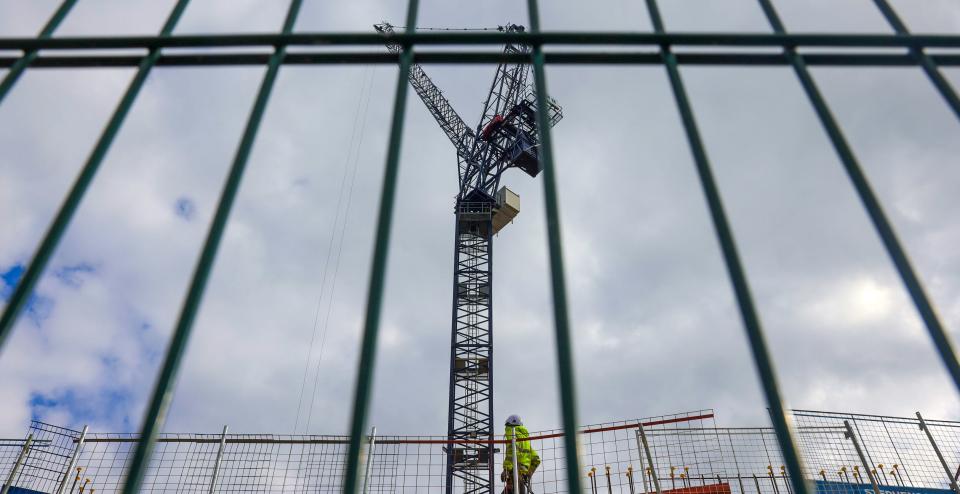UK’s Broken Planning System Costing Taxpayers More Than Ever
(Bloomberg) -- British taxpayers are paying more and more for a planning system buckling under the strain of years of underfunding and increasingly strident NIMBYism.
Most Read from Bloomberg
Freedom of Information requests by Bloomberg show taxpayers are paying the most on record to cover the costs of developers successfully appealing planning applications turned down by local authorities. The share of rejected applications ultimately overturned rose to more than 30% last year, the highest proportion in at least 10 years, the data show.
Standing for not-in-my-back-yard, NIMBYs are increasingly taking advantage of the UK process for approving new homes, making it more bureaucratic, producing avoidable costs and slowing construction amid an acute housing shortage. With an increasing amount of residents taking up their right to share their views before local governments vote on applications, more viable plans are being rejected, only to be then channeled to a central government body to be re-reviewed.
“Planning is a political process,” said Richard Blyth, head of policy practice and research at the Royal Town Planning Institute. “There are cases where planning staff recommend an application for approval and local councils override the decision — leading to more appeals and slower building.”
Bloomberg based the findings on FOI responses from local authorities for seven boroughs of London, plus 20 major UK towns and cities.
The cost of handling appeals rose to more than £30 million ($37.6 million) in the last published financial reports for the Planning Inspectorate, the government agency charged with handling them. Of those costs, roughly £10 million was spent reversing local government decisions, the most on record, according to Bloomberg calculations.
The costs, which are covered by collected taxes, don’t include others incurred from increased professional fees paid by applicants to planning advisers, architects and lawyers to handle their applications nor any additional financing costs as homebuilding is delayed. Local authorities also face additional charges for missing statutory deadlines in the planning process, an occurrence that’s becoming more frequent.
The snarl-ups have thrust the planning process into the crosshairs of politicians. Former Prime Minister Boris Johnson promised to overhaul the rules in a speech during 2020, while opposition leader, Keir Starmer, and Levelling Up Secretary Michael Gove both made pledges for reform last year.
Read more:
Britain’s Chronic Housing Shortage Is About to Get Even Worse
UK Home Buyers Thwarted by System That Can’t Build Enough Houses
Squeezed on Housing, Sunak’s Tories Take Aim at EU-Era Water Law
UK Builders Are Going Rogue But Fewer Offenders Are Being Caught
Around 27,000 new homes were granted planning permission on appeal in the last financial year, bringing the total up to more than 100,000 since 2019 when the Conservatives pledged to build 300,000 new homes annually, a target they’ve missed in every subsequent year.
For appeal applicants, who can prove the local authority acted unreasonably and cost them money, they can apply for refunds for their costs. Unreasonable behavior includes missing deadlines, failing to cooperate, giving wrong information or failing to turn up for site visits.
For Reading Borough Council, a town just west of London, appeals have cost their budget more than £250,000 in legal fees since 2021, money they can ill afford as they attempt to balance the books amid rising costs. The council raised taxes on residents by 4.99% for the latest tax year, the maximum increase allowed.
In the north-east city of Hull, over half of appeals handled since 2010 have resulted in the local authority refunding the applicant the costs incurred in the process, Bloomberg-compiled FOI requests show. The council also raised local taxes by 4.99%.
Before applications even reach the appeals process, local authorities are missing more deadlines and facing penalties as a result. Some 80% of major planning applications were not resolved within the statutory time period of 13 weeks between October and December last year, according to government statistics.
A Bloomberg investigation in May found that a decade of budget cuts have left local governments with too few people to keep up with approving new homes.
The average time from the validation of an initial planning application to the delivery of a first home ranges from about five years to almost seven years for projects of 500 dwellings or more, according to a report put together by planning consultancy Lichfields.
In February, the UK’s Competition and Markets Authority released a report documenting a year-long investigation into the country’s chronic housing shortage. The watchdog said the planning system had become complex and unpredictable and was a major cause of the country’s persistent under delivery of new houses.
“In relation to length, costs, and complexity, we found that the planning process typically takes a long time to navigate, and the time required to make planning decisions is increasing,” the CMA said in the report. The regulator recommended the government streamline the process.
Fast-tracking applications that have already appeared in a council’s local development plan would ease the number of requests going to appeal, according to the Royal Town Planning Institute’s Blyth. Those types of applications often get rejected despite having previously been scrutinized, but almost always win on appeal, he said.
“If a project has already been approved in principle, local authorities should not be refusing developments,” Blyth said. “That’s what applicants get so cross about — the homework has already been done and they’re still getting rejected.”
In the Scottish city of Aberdeen, local authorities ultimately approved two thirds of planning appeals in 2022-23, the FOIs showed.
At Europe’s biggest real estate conference in Cannes last month, UK Housing Minister Lee Rowley told a room of delegates that he had come to “bang the drum for UK housing,” insisting the nation was ready to ramp up development after years of hurdles. Rowley — the sixteenth housing minister since 2010 — said in an interview that the need for more housing was critical.
In the meantime, the costs of not building are rising.
Almost 110,000 households were in temporary accommodation in England at the end of September, an increase of more than 10% in a year and a 37% rise compared with the same date in 2017.
In Cardiff, a surge in private landlords leaving the market and a shortage of construction has left some families in the city without a place to live. The Welsh capital declared a housing emergency in December, just one month after councils in Edinburgh and Glasgow issued similar warnings.
“I have been in Cardiff for over 22 years and family homelessness is the highest I have ever seen it,” said David Jaques, assistant director of development and regeneration at Cardiff Council. “We have families staying in hotels.”
Those costs are also borne by the taxpayer.
Most Read from Bloomberg Businessweek
Modi Is $20 Trillion Short on His Grand Plan for India’s Economy
Biden Strategy to Tame Gas Prices Is in Peril as Iran Sanctions Pressure Mounts
©2024 Bloomberg L.P.


